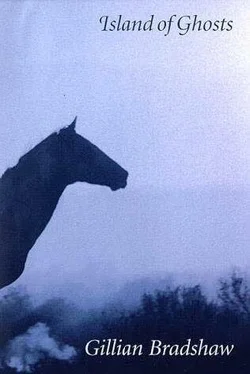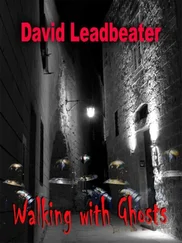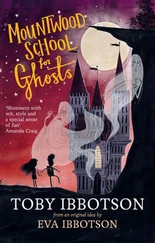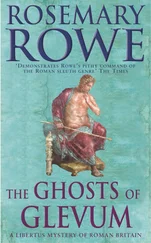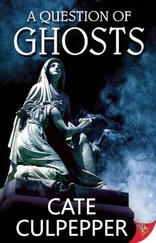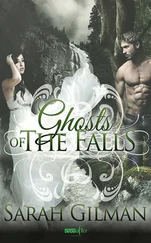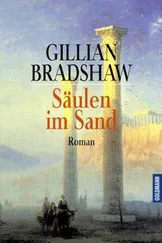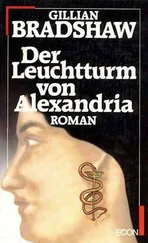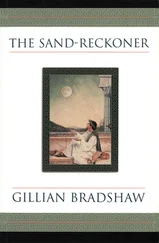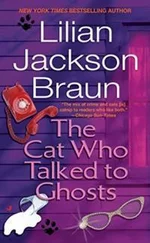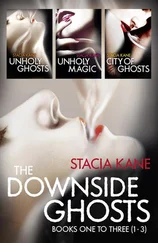Gillian Bradshaw - Island of Ghosts
Здесь есть возможность читать онлайн «Gillian Bradshaw - Island of Ghosts» весь текст электронной книги совершенно бесплатно (целиком полную версию без сокращений). В некоторых случаях можно слушать аудио, скачать через торрент в формате fb2 и присутствует краткое содержание. Жанр: Исторические приключения, на английском языке. Описание произведения, (предисловие) а так же отзывы посетителей доступны на портале библиотеки ЛибКат.
- Название:Island of Ghosts
- Автор:
- Жанр:
- Год:неизвестен
- ISBN:нет данных
- Рейтинг книги:3 / 5. Голосов: 1
-
Избранное:Добавить в избранное
- Отзывы:
-
Ваша оценка:
- 60
- 1
- 2
- 3
- 4
- 5
Island of Ghosts: краткое содержание, описание и аннотация
Предлагаем к чтению аннотацию, описание, краткое содержание или предисловие (зависит от того, что написал сам автор книги «Island of Ghosts»). Если вы не нашли необходимую информацию о книге — напишите в комментариях, мы постараемся отыскать её.
Island of Ghosts — читать онлайн бесплатно полную книгу (весь текст) целиком
Ниже представлен текст книги, разбитый по страницам. Система сохранения места последней прочитанной страницы, позволяет с удобством читать онлайн бесплатно книгу «Island of Ghosts», без необходимости каждый раз заново искать на чём Вы остановились. Поставьте закладку, и сможете в любой момент перейти на страницу, на которой закончили чтение.
Интервал:
Закладка:
“Shh,” I said, since the stallion was putting his ears back again.
The man ran out. A few minutes later, he came back, with Pervica. She stopped in the doorway, so suddenly that her companion bumped into her. The rising sun lanced around her shape, framing it black against the white winter light-a tall woman, wide-hipped, deep-breasted, extraordinarily graceful. She had drawn me back into life the way my heart had drawn the blood back into my hand. Desire is, some think, a simple thing, like thirst or hunger. But all I could feel of desire had been clenched upon the dead until that moment, when it opened all at once to Pervica’s grace. The happiness I felt was like another sunrise, immense and shining.
“Very many greetings, Lady Pervica,” I said, giving the horse a final pat and ducking back under the door.
“Greetings,” she returned, coming forward slowly, looking at me in amazement. “Cluim told me you were in here, with Wildfire eating out of your hand. I’d just found your bed empty, and I had no idea where you’d gone.” Seen in daylight, her hair was brown, and her eyes a light blue-gray. She was dressed just as most of the British women I’d met, in a gray-brown dress and checked cloak. She was attractive rather than strikingly beautiful. I might not have noticed her in the marketplace at Dubris, but if I had noticed her, I’d have looked at her again: she had a grace and dignity that set her apart. I guessed already that her face was the kind that can grow on a man, becoming more beautiful as he comes to know it well.
“I am sorry,” I said. “I am not used to sleeping in houses.” I looked back at her companion, then asked, “You are the Cluim who took me from the river and saved my life?”
Cluim shuffled his feet and said, “Non loquor Latine.”
“He is,” Perdica supplied, and interpreted my question for him.
He grinned and bobbed his head at me. He was a small, dark man in his twenties, very dirty. “
Tell him I am grateful,” I said.
Pervica interpreted, and Cluim bobbed his head again, shyly.
I unfastened my dagger from my belt and held it out to him, hilt first. “This is no repayment for a life, but it has some value. Perhaps he would accept it, in token of my thanks?”
“He is unlikely to refuse it,” Pervica said dryly, and indeed, Cluim’s face had lit up at the sight of it. He took it and ran his fingers over the jewels in the hilt, exclaiming; drew it and ran his thumb along the blade and exclaimed again as it cut him, then grabbed my hand and shook it wildly, beaming at me.
“And I am grateful to you as well, Lady,” I told Pervica. “It is clear to me that I would have died even after I was taken from the river, if it had not been for your care. Such a debt I cannot repay but with thanks, and the prayer that one day the gods grant me the power to return your goodness.”
Her cheeks flushed a little. “You are very courteous. I could hardly do anything else but try to help you, and you have repaid my efforts already, by living. I certainly didn’t expect to see you looking so well this morning. But will you at least come into the house for breakfast?”
“If you wish it, Lady.”
“I do.” She said something dry to Cluim, who grinned, fastened the dagger to his belt, and went off toward the cows. The lady started back toward the house, and I limped after her. “So, you work with horses, Ariantes,” she said, after a few steps.
It was a reasonable assumption, given that her stallion was so easily alarmed. “Yes,” I agreed. “And that is a fine horse. Where did you get him?”
“My husband bought him at Corstopitum market-a great bargain at four hundred and thirty denarii. He was full of plans to use it for stud, and to start the business of horse-rearing here at River End. Nothing came of it except that he was four hundred and thirty denarii out of pocket: nobody wants his mares serviced by such a vicious animal. I’m astonished that the horse let you near him. He barely tolerates me, and we haven’t been able to do a thing with him since we got him.”
“He is not vicious, but frightened.” We reached the door of the house and stamped the snow off our shoes. “He has been ridden too long …”-I hesitated, searching for the right words, then continued-“with the curb bit and the iron bridle.”
“The iron bridle?” she repeated blankly.
“The psalion, I think it is called. The curb bit and the iron bridle: it is a saying my people have, but here it is true.”
“Do you use this iron thing?” she asked uneasily.
I liked that unease. I shook my head. “If a horse needs that much force to control it, it is not a good horse, and I would not keep it. That chestnut is a good horse. He was punished too much, when he was willing to please as well as when he was not, and it is that that has ruined him.”
“How can you tell?”
“He was afraid when he saw me first, but not angry. He enjoyed attention.”
“Is he ruined forever?”
“I could handle him for you,” I told her. “I have a mare I might breed to him.” I was surprised that I mentioned her, then reconsidered. The stallion was tall enough, and I was unlikely to find a better one here in Britain.
She smiled at me rather crookedly. “Have you? Do you trade horses, or just raise them?”
“At the moment, neither. I used to raise some, but now… Still, I would not mind breeding Farna to him. I have a stallion, but he is a courser, and a bit light; I need an animal with some height to it.”
She opened the door and went in, and I followed, ducking my head under the low threshhold.
There were two other women in the kitchen, one a lean redhead of about forty, and the other a dark girl of about sixteen who by her looks was Cluim’s sister: they were both standing by the bed and talking animatedly. Pervica clapped her hands to get their attention and spoke in British; she gestured at me. The other two laughed; the girl clutched her hands together and looked at me admiringly. The older woman went to the fire and took a pot off a hook, calling to the girl, who brought some bowls. She spooned a kind of oat gruel out of the pot, and the girl set two bowls on the table, then took two more through the door on the other side of the hearth. “The dining room’s this way,” said Pervica, following her.
The dining room seemed to belong to a different house. The walls were plaster, the floor red and white tile, and there was a glass window. A couch with feet carved in the shape of eagle claws stood by a low rosewood table, and on the wall there was a painting of the three Graces dancing together under an apple tree, all lurid pink flesh and swirling draperies. The girl set the gruel down on the table, bobbed her head to her mistress, and went back to eat her own breakfast in the kitchen.
“It’s not as warm in here,” said Pervica, “but it’s not as smoky, either.” She sat down on one end of the couch and picked up her spoon.
I sat on the other end and stirred the porridge. I did not share the Roman taste for grains and pulses, but I was hungry, and did not want to offend the lady. “This is a large farm?” I asked.
“Neither large nor small,” she said matter-of-factly. “Two hundred sheep, a dozen cattle, three horses, twelve acres of arable land, and an apple orchard. I have three families to help me with it. Elen and her two children live here, and the others are in their own houses nearby.”
“You said you were a widow.”
“I did, didn’t I?”
I stopped stirring the porridge and sampled it. It wasn’t actually unpleasant, so I ate another spoonful. “How long have you had the horse?”
She laughed. She had a pleasant laugh, low and soft. “You are tactful not to ask directly when my husband died. Autumn before last-a few months after buying the horse. I suppose I should have done more with the animal. He’ll tolerate me, and I could show Cluim how to manage him, too. But it takes time.”
Читать дальшеИнтервал:
Закладка:
Похожие книги на «Island of Ghosts»
Представляем Вашему вниманию похожие книги на «Island of Ghosts» списком для выбора. Мы отобрали схожую по названию и смыслу литературу в надежде предоставить читателям больше вариантов отыскать новые, интересные, ещё непрочитанные произведения.
Обсуждение, отзывы о книге «Island of Ghosts» и просто собственные мнения читателей. Оставьте ваши комментарии, напишите, что Вы думаете о произведении, его смысле или главных героях. Укажите что конкретно понравилось, а что нет, и почему Вы так считаете.
